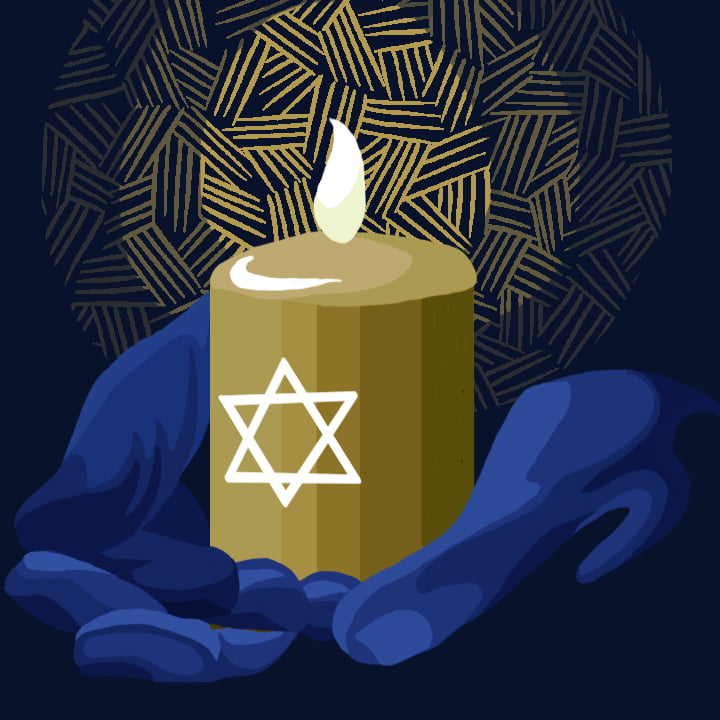On this Inaugural Holocaust Survivor Day, The Blue Card, a national non-profit organization dedicated to aiding over 3,000 needy Holocaust survivors households is raising awareness of the services available through their organization for Holocaust survivors—as well as the ongoing need for donor support to fund these important initiatives.
Throughout the COVID-19 pandemic, The Blue Card has been providing the following critical services for Holocaust survivors, among many others:
- Ready-made meals, food purchase and delivery service
- Securing vaccination appointments and providing transportation
- Summer Retreat – Survivors are provided with handicapped-accessible accommodations, transportation, scheduled meals, and an itinerary that ensures a structure and safe experience for the group.
- Mood Restore Light Box – A special, compact, and portable UV free unit provides light therapy to Holocaust survivors. In addition to effectively treating Seasonal Affective Disorder, the Mood Restore Light Box improved visual clarity and color rendering, as well as offsets season, weather, and climate changes and helps support circadian rhythm regulation, which is even more important during COVID-19 times.
- Companion Pets – Companion pets bring comfort and happiness to the older population with interactive electronic cats and dogs that replicate the look, sounds, and feel of real pets. Many studies have found that these pets can enhance one’s well-being and quality of life through companionship.
- Liftware Utensils –Liftware Steady is an electronic stabilizing handle and selection of utensil attachments designed to help people with hand tremor, which may be related to Parkinson’s disease or essential tremor, to eat more easily. Holocaust survivors with these conditions benefit tremendously from this device.
“The Blue Card is providing critical assistance to Holocaust survivors during the COVID-19 pandemic,” stated The Blue Card’s Executive Director, Masha Pearl. “It is our duty to take care of those that have already suffered so much, during this time that can be extra traumatizing, considering their pre-existing conditions from enduring unimaginable hardships during the Holocaust.”
The Blue Card also provides Holocaust survivors with the following services daily:
- Education & Outreach Programs:
- Person-Centered, Trauma-Informed (PCTI) training for dental and medical professionals working with Holocaust survivors
- The Blue Card-Lissner Hospital Visitation Program – Volunteer visits to hospitalized Holocaust survivors.
- Nutrition guidance
- Jewish Holiday – Provides financial support for the High Holidays, Hannukah, and for Passover, giving survivors the financial means for a better holiday season.
- Mazel Tov Birthday – Provides survivors with a card and a check on their birthday. This is particularly meaningful for holocaust survivors who lost their entire family during the war.
- FreeStyle Libre Glucose Monitoring: The Freestyle Libre 2 system continuously measures glucose data with customizable, optional real time alarms The unit gives people with diabetes excellent accuracy and actionable information to better manage their condition.
- Grant assistance for emergency needs, including:
- Housing and related costs to prevent eviction, homelessness, or utility shut-off
- Emergency relocation
- Food purchase
- Medical and dental care, including medical equipment not covered by insurance
- Emergency relocation
- Essential clothing and footwear
- Purchase and repair or essential major and minor appliance
- Aid to survivors battling cancer through the Siggi B. Wilzig Fighting Cancer Together program
- Emergency Prevention Programs, including
- Monthly stipend for poverty-stricken survivors
- Telephone emergency response system
The Blue Card, established in 1934 in Germany and organized in the U.S. in 1939, is the only organization whose sole mission is to provide critical financial aid for emergency medical, dental, housing and food needs to survivors of Nazi persecution. While the Holocaust seems like a long ago nightmare, for survivors it is a continuing one. Of the 75,000 Holocaust survivors in the U.S., 1/3 live at or below the federal poverty level. For many, the losses they experienced decades ago are compounded by their current struggles to subsist on meager incomes and threadbare or nonexistent support systems. Studies show that Holocaust survivors have higher incidences of mental illness, cancer, and other debilitating diseases.
You can donate to The Blue Card Fund here.






